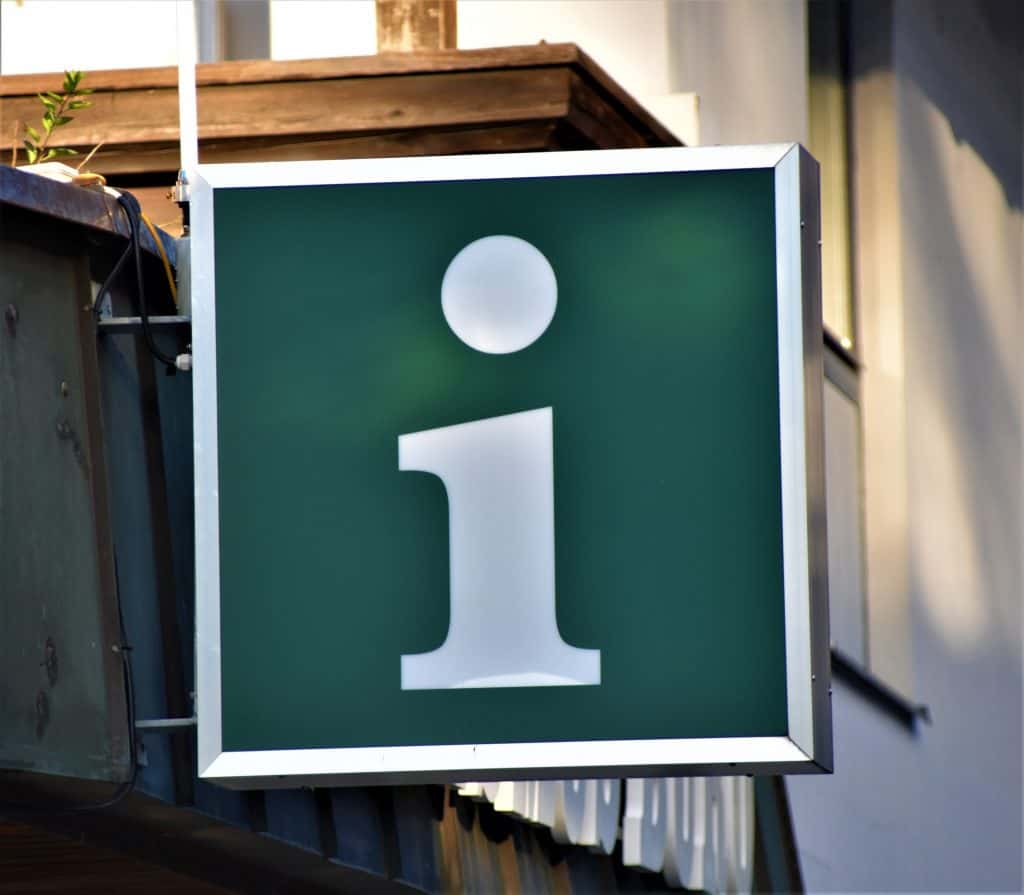Why are pensions important? 8 Things you need to know
Are you nearing retirement age and feeling a little anxious about what comes next?
Reached 40 and realised you can’t or don’t want to work forever?
Or are you just starting to plan for your future and want to make sure you have all your bases covered?
In either case, it’s important to understand the basics of pensions and why they are so essential for a secure financial future.
This article will explore what pensions are, how they work, and the many benefits they offer. We’ll also touch on different types of pensions and some key considerations for choosing the right plan for you.
By the end of this article, you should better understand pensions and why pensions are important to your retirement planning.

Why are pensions important?
Think about your parents or grandparents – do you remember them talking about pensions?
Chances are, they didn’t have to worry too much about them back in their day. That’s because pensions were a lot less important than they are today. With life expectancies increasing and the cost of living rising, it’s more important than ever to have a decent pension pot.
Here are a few reasons why:
- You’re living longer. This is the most obvious reason. People are living longer, which means they need their money to last longer. A pension can help you make your savings last throughout retirement.
- The cost of living is rising. Another key factor is the rising cost of living, which can make it difficult to make ends meet on a fixed income. A pension can help you keep up with the rising cost of living and maintain your standard of living in retirement.
- You want to retire comfortably. Finally, pensions can help you retire comfortably. With a decent pension pot, you can have peace of mind knowing that you’ll have a comfortable income to live on in retirement.
So now that we’ve looked at why are pensions important, let’s take a closer look at how they work.
How do pensions work?
Pensions remain one of the most effective ways to secure retirement income.
A pension is simply a pot of money that you (and your employer, if you have one) contribute to throughout your working life. You can then use this money to top up your state pension and provide yourself with a comfortable income when you retire.
Right now, it seems like everyone is overwhelmed with financial stress. And while not every person faces a hard time saving up money towards their retirement, many do – especially millennials.
This generation has had to endure one of the worst recessions ever and, as a result, has been forced to put their retirement planning on the backburner.
The key to successfully saving for retirement is starting early and contributing regularly. However, this can be easier said than done, especially if you don’t understand how pensions work.
Pension plans are retirement savings plans that are sponsored by employers, governments, or other organisations. There are two main types of pension plans: defined benefit and defined contribution.
A defined benefit pension plan is a type of pension plan where the benefits you receive in retirement are determined by a formula, typically based on your years of service and salary. However, these plans are now very rare.
A defined contribution pension plan, on the other hand, is a type of pension plan where the contributions you make into the plan are fixed, but the benefits you receive in retirement depend on how well the investments in the plan perform.
These are now the default pension for most retirements savings plans.
What are the advantages and disadvantages of pensions?
Pension savings are important for a work optional later life but there are some opportunity costs that come with stashing all your money in a pension.
| Advantages | Disadvantages |
|---|---|
| 1. Steady Income Stream> Pensions provide a steady income stream during retirement, ensuring financial stability. | 1. Lack of Control>Individuals usually have little control over investment decisions within a pension plan. |
| 2. Employer Contributions>Many pension plans include contributions from the employer, which can significantly increase the retirement fund. | 2. Limited Liquidity>Funds in a pension plan are not easily accessible before retirement age without penalties. |
| 3. Tax Benefits>Contributions to pension plans are often tax-deductible, and taxes on earnings are deferred until withdrawal. | 3. Risk of Underfunding>If the employer managing the pension plan experiences financial difficulties, the pension may be underfunded. |
| 4. Inflation Protection>Some pensions are indexed to inflation, helping to maintain purchasing power over time. | 4. Vesting Periods>Some pension plans have vesting periods, meaning you have to work for the company for a certain number of years to be entitled to the pension. |
| 5. Professional Management<br>Pension funds are managed by professionals, relieving individuals from the need to make investment decisions. | 5. Potential for Reduced Benefits>Changes to the pension plan or economic conditions may lead to reduced benefits. |
| 6. Survivor Benefits>Many pension plans offer survivor benefits, providing financial support to a spouse or dependent after the pensioner’s death. | 6. Lack of Portability>Pensions are usually tied to one employer, making them less portable than other retirement accounts if you change jobs. |
| 7. Encourages Saving>Automatic deductions for pension contributions encourage long-term saving habits. | 7. Opportunity Cost>Money locked in a pension could potentially earn higher returns if invested elsewhere. |
So, how can you make pensions work for you in retirement?
Contributing to a pension plan as early as possible is the key to a good start. The earlier you start, the more time your money has to grow, and your retirement will be more comfortable.
Another key consideration is to choose the right type of pension plan for your needs. If you’re not sure which type of plan is right for you, speak to a financial planner who can help you make the best decision for your individual situation.
Finally, be sure to monitor your pension plan regularly and make adjustments as needed. This includes making sure that your contributions are on track and that the investments in your plan are performing well. By doing this, you can rest assured that your pension will be there for you when you need it in retirement.
1. What are pensions, and why are they important
It’s important to have savings and a pension in case something unexpected happens. Unexpected events can include things like job loss, illness, or car accidents. A pension can help you maintain a comfortable lifestyle in retirement, while savings can help you cover unexpected costs.
Pensions are a form of savings that workers can use to support themselves in retirement. They’re important because they offer a way for retirees to have a steady income and avoid having to rely on Social Security or other government assistance. Pensions can be provided through an employer or through an individual retirement account (IRA) or self-invested personal pension (SIPP) in the UK.
2. How do pensions work
Pensions work by providing retirees with a steady income in retirement. The money for pensions comes from a variety of sources, including worker contributions, employer contributions, and government programs. Pension benefits are often based on factors such as length of service and salary.
You can access your pension benefits when you reach retirement age, which is typically around age 65-67. Some pension plans allow you to take your benefits early, but doing so may reduce benefits and a significant tax bill.
3. The benefits of pensions
Pensions offer several important benefits for retirees.
First, they provide an income in retirement, which can help cover basic living expenses or more, depending on the size of your pension pot.
Second, pensions can help reduce the risk of financial insecurity in retirement.
Third, pension payments are often exempt from taxes, which can help increase your overall take-home pay in retirement.
4. Types of pensions
There are several different types of pensions, including defined benefit pensions and defined contribution pensions.
Defined benefit pensions provide retirees with a predetermined monthly income in retirement, while defined contribution pensions allow workers to contribute a set amount of money each month into their own retirement account.
Defined contribution pensions are a type of pension in which the individual worker contributes a set sum each month into their own retirement account. These accounts can be invested in a variety of ways, including stocks, bonds, and mutual funds.
You will find that your options around creating a pension include:
- Work-based
- Private pensions or SIPPS
- Government pension – which comes from your taxes =
When choosing a pension, there are several things to consider, such as your age, retirement goals, and risk tolerance.
Age is an important factor to consider because it can affect how long you have to save for retirement and how much you need to save.
Retirement goals will also play a role in choosing a pension, as you’ll need to make sure your benefits will cover your desired lifestyle in retirement.
Risk tolerance is another key consideration, as some pension plans are riskier than others. For example, defined benefit pensions offer a guaranteed income in retirement, while defined contribution pensions do not.
Clearly understanding these differences and which ones are the right one/s for you will be a key part of a successful retirement.
5. Planning for retirement with a pension
When planning for retirement, it’s important to consider how your pension will fit into your overall financial picture.
You’ll need to think about things like how much money you’ll need to have saved, how much you can expect to receive from your pension, and whether you’ll need to supplement your income with other sources of income.
- Getting a state pension forecast in the UK is good to start understanding what you might receive.
- Do you have any other savings and investments that could add to your income?
- Will you or do you want to continue to earn some money in retirement?
- Do you have any assets, or could you create ones that might provide an income in retirement?
- Property
- Businesses
- Stocks
- Digital or physical assets.
6. Choosing a pension plan
There are a few things to consider when choosing a pension plan.
First, you’ll need to decide where you will save your money, in work-based or private pension. You could, of course, do both.
In workplace pensions, you might find a lot of the choices are made for you. Just check that you are happy with these and figure out what or if you can change things to fit your needs better, i.e. is the default fund the right fund for you?
Then you will need to decide what you invest your money in, how much risk or volitivity you are willing to take, need to take and how much you need to save.
Pensions are often exempt from taxes, which can help increase your overall take-home pay in retirement.
You also need to consider how or if your pension will be taxed when you begin to access them.
7. How to make the most of your pension
You can do a few things to make the most of your pension.
First, you should start saving as early as possible.
Second, you should consider contributing extra money to your pension if you can afford to do so.
Thirdly, get yourself educated about personal finance and financial planning to ensure you make the most of your money and reach your most important goals. Remember, are you not saving up everything for your old age?
Finally, you should diversify your investments to help reduce the risk of any one thing going wrong in retirement.
8. The risks of not having a pension
There are several risks associated with not having a pension.
First, you may not have enough money to support yourself in retirement.
Second, you may be at risk of financial insecurity in retirement.
Third, you may have to rely on Social Security or other government assistance programs to cover your basic living expenses in retirement.
Fourth, without a pension, you may end up working longer than you’d like or having to take a significant pay cut in retirement.
Fifth, you may not be able to leave a financial legacy for your family.
FAQ: Why are pensions important?
What are the risks of not having a pension?
There are several risks associated with not having a pension, such as not having enough money to support yourself in retirement, financial insecurity in retirement, or relying on Social Security or other government assistance programs to cover your basic living expenses in retirement.
Are pensions important?
Yes, pensions are an important part of retirement planning. They offer several benefits, including an income in retirement, reduced risk of financial insecurity and tax-advantaged status.
There are many things to consider when choosing a pension plan, such as where you will save for retirement work or personal plan, how much money you’re willing to contribute each month and how your pension will be invested in order for it to work best for you.
Pensions can offer security and peace of mind in retirement, but it’s important to understand the various types and choose the right one for your needs
Are pensions good or bad?
Generally, pensions are seen as a good idea for people to place their long-term savings in. There are tax advantages and built-in behavioural aspects, i.e., you can’t access them, which can help you save for later life.
What are the disadvantages of a pension?
The main disadvantage of a pension is the lack of access. Generally, you can’t access your savings until you 55-57 in a private pension and 65-67 for your state pension. So, you need to be able and prepared to lock any pension savings away for a potentially long time.
Is it better to have a pension or savings?
It’s probably best to have both. A pension for long term goals and savings for short and medium goals. These will allow you to have a comfortable life now and into retirement. The wrong combination could see you have money locked away for too long or spending it all because you have too easy access to most of it.
What is the benefit of a pension?
A pension is a retirement savings plan that provides regular income to individuals during their retirement years. The main benefit of having a pension is that it provides an income stream for retirees to live on when they are no longer working.
Many pensions also offer survivor benefits that provide income to a spouse or other beneficiaries after you pass away.
What is a pension & how does a pension work?
A pension is a retirement savings plan that employers typically offer to their employees. The way a pension works is relatively simple: during an employee’s working years, a portion of their salary is set aside and invested in a pension fund.
Over time, this money grows through compound interest and investment returns.
When the employee reaches retirement age, they can begin receiving regular payments from the pension fund. The amount of the payments is based on a variety of factors, such as the employee’s years of service, their salary, and the type of pension plan they have.
There are two main types of pension plans: defined benefit plans and defined contribution plans. In a defined benefit plan, the employer guarantees a specific benefit amount to the employee upon retirement. In a defined contribution plan, the employer and/or employee contribute a set amount to the plan, but the final benefit amount is not guaranteed and is based on the performance of the underlying investments.
Final thoughts: Why are pensions important?
Pensions are an important part of retirement planning.
They offer several benefits, including an income in retirement, reduced risk of financial insecurity and tax-advantaged status.
There are many things to understand about your pension, including is it a defined benefit or defined contribution plan, how much money you’re willing to contribute each month and how your pension will be invested in order for it to work best for you.
Pensions can offer security and peace of mind in retirement, but it’s important to understand the various types and take action on building your ideal retirement now.
If you would like help planning your finances for your favourite future, sign up for our newsletter below.
Need a Helping Hand with Your Finances? 🤝💰
If you’ve made it this far, congratulations! You’re already taking steps towards a healthier financial future. But maybe you’re feeling a bit overwhelmed. Maybe the thought of budgeting, saving, and investing still makes you break out in a cold sweat. Don’t worry, you’re not alone, and help is available.
At Financially Happy Money Coaching, I understand that money isn’t just about numbers. It’s about emotions, behaviours, and life choices. That’s why we’re here to help you take the stress out of money and build wealth in a way that aligns with your values and lifestyle.
Whether you’re just starting out on your financial journey or you’re looking to take your finances to the next level, we’re here to guide you every step of the way. I’ll help you understand your financial behaviours, set realistic goals, and create a personalized plan to achieve those goals.
So, why wait? Start your journey towards financial happiness today. Remember, the best time to start was yesterday. The second best time is now.
Click here to schedule your consultation and let’s make your money work for you, not vice versa. 💪💰
Remember, financial freedom isn’t a destination; it’s a journey. And every journey is easier







